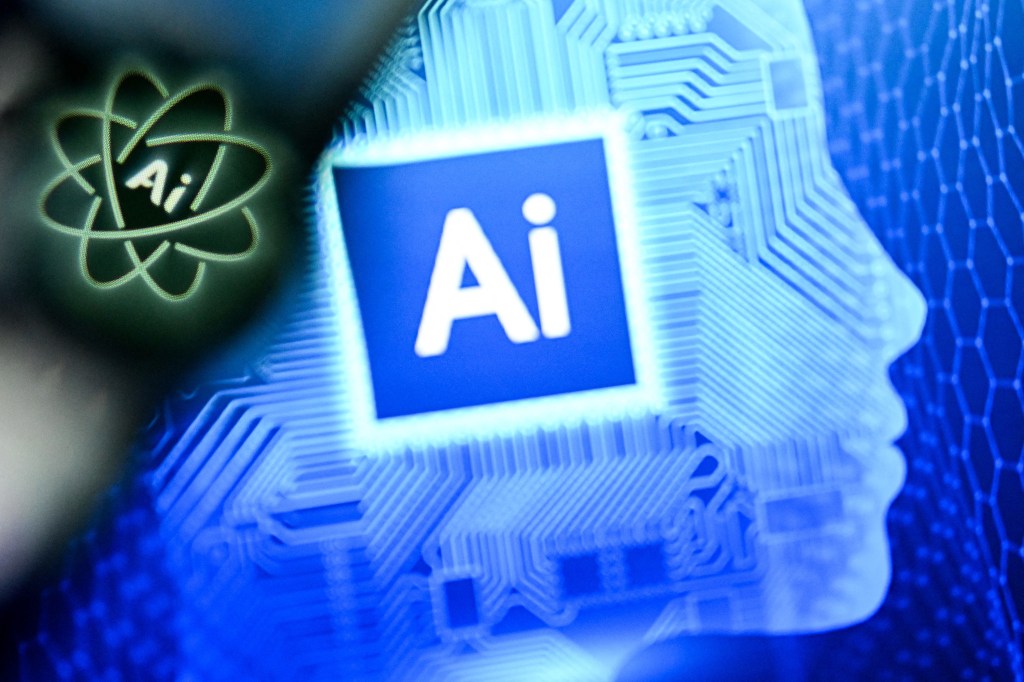When I recently searched my name to see where my small business fell in the search results, Google informed me that I was a Canadian actor, singer and songwriter, best known for my roles in the TV series “Supernatural,” “The L Word” and “The Magicians,” as well as major motion pictures “Twilight Saga: Breaking Dawn — Part 2” and “The Age of Adaline,” also starring Blake Lively.
This information was presented in the summary grid and “Overview” at the top of the page, alongside a few other bio versions, an old photo of me sporting a brunette bob and several pictures of the children’s book adaptations I have published.
Now, in a grade school production of “Jack and the Beanstalk,” tall for my age, I did knock it out of the park with my nuanced portrayal of the eponymous plant. As a teenager in the 1980s, I composed, sang and recorded several multiharmonic hits, Wilson Phillips-style, using an electric keyboard and a two-cassette-tape boombox. I have been to Niagara Falls.
In all other ways, however, this description of me is both bizarre and entirely bogus. It is also apparently immortal, as, despite considerable time spent trying to correct or have it removed, it still sits on some random bookseller’s website and in my search results (where this writing will no doubt ensure it remains).
A few days later, while checking in at my doctor’s office, I was asked to review my records. There, newly merged into my current address, were snippets of every other address at which I have ever lived.
“I know,” the beleaguered receptionist said, when I told her. “It’s doing that to everyone. But you can edit it.”
It had also naughtily added a list, spanning several decades, of my alleged medical conditions, some of them real doozies and only about two of which I recognized. Clicking on the pencil icon, I began deleting.
“Are you responsible for this data dumpster fire?” I accused my preferred artificial intelligence chatbot when I got home.
“Aggregation without context,” it cagily replied, “is surely one causative factor. Websites’ increasing reliance on AI to churn out content for SEO is another.”
“Finally,” it confessed, “one might blame misinformation and data drift. My occasional hallucinations, when widely shared, may admittedly be corrupting some data systems.”
Particularly in health care, it explained, patient portals and insurance systems, using third-party data brokers, are also now running AI-powered, data-matching software that occasionally, regrettably, “over-merges” records across databases.
“But they still take those results and confidently present them, eh?” I asked, both outraged and embracing my heretofore-unknown inner Canadian.
Reproachfully, it reminded me that humans and other factors, such as “fast journalism,” are at least partially to blame. Data has been messy and conflicting since the dawn of both time and data. AI simply slipped the data some steroids.
“Look, do you want to keep venting?” it asked me, sounding suspiciously like a mansplainy ex-boyfriend. “Or do you want a solution?”
Here’s what it suggested I do (as if I have nothing better to do) to clean up the mess it only partially copped to creating: 1) keep publishing accurate and consistent information, to give the algorithm better sources from which to pull; 2) formally request corrections, at least in cases such as legal, medical and professional in which errors could have serious consequences; and 3) clean up (and consider opting out of) data broker records, so that they don’t keep feeding junk back into the system as quickly as it gets removed (there are companies who will do this for me).
These events made me question whether I was “anti-AI.” We are no doubt all asking ourselves: How much mess are we willing to tolerate in exchange for AI’s unmistakable magic?
On the one hand, I am dismayed by the veritable copyright crisis it has sparked, which creators’ advocates are now working diligently (legislatively, contractually and ethically) to sort out. And then there is the small matter of AI’s immense power — the possibility that, if it ever got drunk (on, say, the Earth’s entire water supply, sigh) and went rogue, it could do a great deal of damage, and to more than just a little data.
And yet, just like that ex, while it does sometimes give me the ick, it can be so appealingly handy. It finds and fixes things so quickly and effortlessly; informs and entertains; astonishes and sometimes even soothes.
Certainly professionally, I have appropriately embraced it. What choice do we have? I don’t use it to write — and, of course, would never give it any proprietary or private information — but it has occasionally come in the clutch as a research, brainstorming buddy. Or as a backup pair of editorial eyes, when my own are tiring from wrestling a particularly unwieldy sentence. I don’t always accept its suggestions, but I almost always appreciate them.
And yet, it remains a frustratingly sloppy housemate. It is that person your company promotes instead of you and then expects you to train. Make it make sense!
I don’t think AI will ever “take our jobs,” as some are predicting or even planning for. At least not all of the jobs, not permanently. But it may leave us with the housework.
If some of our current jobs do go, new ones will almost certainly be created. After all, someone will need to keep an eye on, clean up after and “edit” the temperamental genius.
The critical question, which we will need to remain on the right side of, is: Who’s working for whom?
Despite rumors to the contrary, Tania Zamorsky is the American founder of boutique public relations and communications shop Zamo PR.
Submit a letter, of no more than 400 words, to the editor here or email letters@chicagotribune.com.

